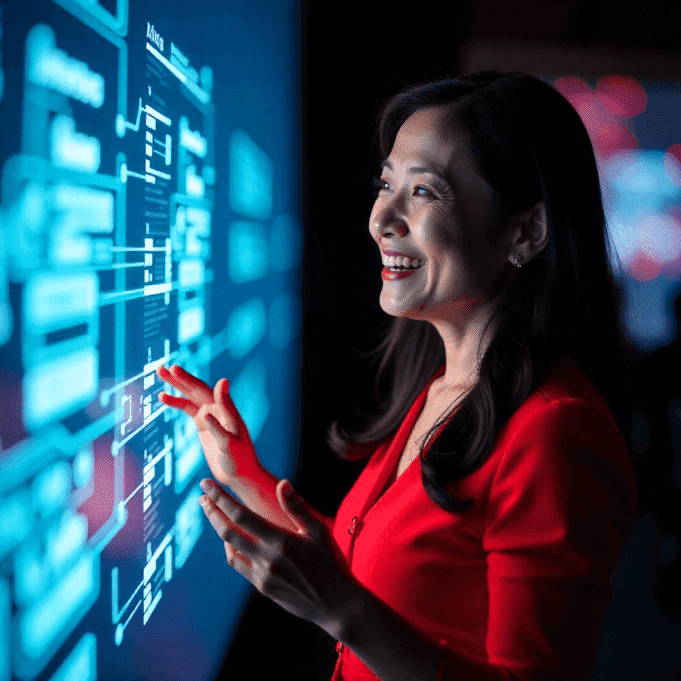The future of search is being revolutionized by artificial intelligence, and few people understand this transformation better than Pinterest’s staff AI engineer Faye Zhang. In a fascinating deep dive into the intersection of AI and discovery, Zhang reveals how modern search engines are evolving beyond simple keyword matching to truly understand user intent and context. learn more about ai
How AI Powers Modern Search: Expert Interview with Faye Zhang
The digital economy faces a striking paradox: despite virtually infinite online inventory, users still struggle to find exactly what they’re looking for. Zhang estimates this “discovery crisis” impacts a staggering $6.5 trillion market, with countless missed connections between searchers and the perfect products they never find.
At Pinterest, Zhang’s team is tackling this challenge head-on with PinLanding, an innovative AI system that bridges the gap between user context and platform content. Rather than just matching keywords, it leverages advanced vision-language models to understand the deeper meaning behind both searches and inventory.
The Evolution of AI-Powered Discovery
Modern search has come a long way from basic collaborative filtering (“users who liked X also liked Y”). Today’s systems employ sophisticated AI that can:
– Understand visual content through advanced computer vision
– Process natural language to grasp search intent
– Connect related concepts through semantic understanding
– Predict user preferences based on behavioral patterns
Zhang highlights how companies like Netflix are unifying their recommendation systems under architectures like UniCoRn, while YouTube is teaching Google‘s Gemini AI to “speak the language of video recommendations.” These advances mark a fundamental shift from correlation-based to causation-based discovery.
The Future of AI Search and Discovery
Looking ahead, Zhang emphasizes several key developments shaping the future of search:
– Larger context windows in language models, enabling more comprehensive understanding
– More sophisticated context engineering to optimize how information is presented to AI systems
– Better integration of structured data to improve search accuracy
– Enhanced predictability and transparency in AI decision-making
The implications extend far beyond just product search. These technologies are reshaping how we discover everything from content to jobs to entertainment. As Zhang notes, the key is not just having access to information, but having AI that can truly understand what we’re looking for and why.
For businesses and developers looking to implement modern search solutions, Zhang recommends focusing on both the technical foundation (like leveraging vision-language models) and the user experience aspects of discovery. The most successful systems will be those that can seamlessly combine AI capabilities with intuitive interfaces that make sense to users.
As AI continues to evolve, we can expect even more sophisticated search capabilities that better understand context, intent, and the subtle nuances of human preferences. The future of discovery isn’t just about finding needles in digital haystacks – it’s about understanding exactly which needle each user needs, even when they’re not quite sure how to ask for it.




